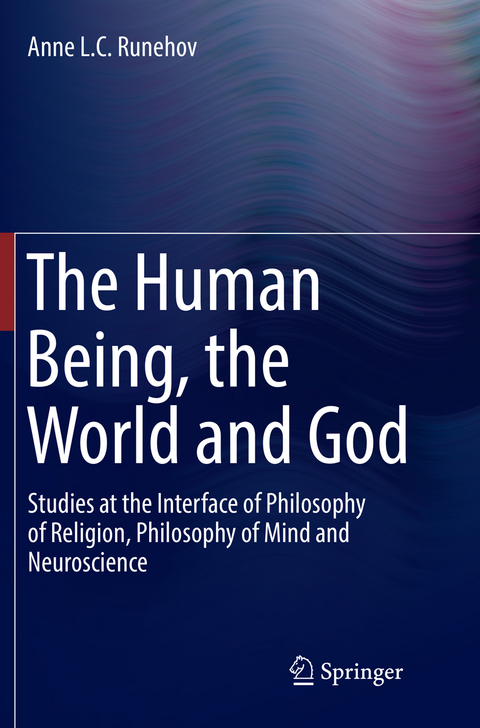
The Human Being, the World and God
Springer International Publishing (Verlag)
978-3-319-83047-6 (ISBN)
This book offers a philosophical analysis of what it is to be a human being in all her aspects. It analyses what is meant by the self and the I and how this feeling of a self or an I is connected to the brain. It studies specific cases of brain disorders, based on the idea that in order to understand the common, one has to study the specific. The book shows how the self is thought of as a three-fold emergent self, comprising a relationship between an objective neural segment, a subjective neural segment and a subjective transcendent segment. It explains that the self in the world tackles philosophical problems such as the problem of free will, the problem of evil, the problem of human uniqueness and empathy. It demonstrates how the problem of time also has its place here. For many people, the world includes ultimate reality; hence the book provides an analysis and evaluation of different relationships between human beings and Ultimate Reality (God). The book presents an answerto the philosophical problem of how one could understand divine action in the world.
Anne L.C. Runehov has a Reader (Associate Professor) degree from the Uppsala University. She earned a Doctor degree in Philosophy of Religion at Uppsala University, and a Master degree in Theoretical Philosophy, major Philosophy of Mind at the same university. She is editor in chief for the 4 volume Encyclopedia of Sciences and Religions, Springer 2013. Co-EiC is prof. Lluis Oviedo. She is co-editor of the ESSSAT series Issues in Science and Religion, Springer. She was also editor in chief for the series Copenhagen University Discussions in Science and Religion, Faculty of Theology publications, Copenhagen until May 2014. She is also field editor for the European Journal of Science and Theology. She is the author of Sacred or Neural? The Potential of Neuroscience to Explain Religious Experiences Vandenhoeck & Ruprecht, 2007, which is based on her doctoral thesis for which she received the 2006 ESSSAT research prize. Furthermore, she has been the director of the Copenhagen Network for Science and Religion 2008-2013), funded by the John Templeton Foundation. She published several peer-reviewed articles. Runehov has mainly (but not merely) been working within the debate of Science and Philosophy of Religion and philosophy of Mind. Her main research interests has been Neuroscience, Cognitive science and Quantum Mechanics which are studied from a perspective of Philosophy of Religion, Philosophy of Mind, Epistemology and Philosophy of Science.
Part I. Human Being.- 1. A Two- and Threefold Self.- 2. The Human Experiencer.- 3. Human Uniqueness.- Part II. The World.- 4. Understanding Reality.- 5. Mindreading.- 6. Free will, Responsibility and Moral Evil.- 7. Human Time.- Part III. God.- 8. God-Human-God Relationship.- 9. Final Conclusions and Reflections
| Erscheinungsdatum | 05.03.2022 |
|---|---|
| Zusatzinfo | XXI, 186 p. 5 illus., 1 illus. in color. |
| Verlagsort | Cham |
| Sprache | englisch |
| Maße | 155 x 235 mm |
| Gewicht | 3226 g |
| Themenwelt | Geisteswissenschaften ► Psychologie ► Biopsychologie / Neurowissenschaften |
| Geisteswissenschaften ► Religion / Theologie | |
| Sozialwissenschaften ► Soziologie ► Spezielle Soziologien | |
| Schlagworte | belief systems • Cyborgs and robots • Emotion and cognition • human being • Human matters • Human uniqueness • mystical experience • near-death experience • Neural networks • Neuroscience • Philosophy of mind • Philosophy of Religion • Theory of Mind • To be human |
| ISBN-10 | 3-319-83047-3 / 3319830473 |
| ISBN-13 | 978-3-319-83047-6 / 9783319830476 |
| Zustand | Neuware |
| Haben Sie eine Frage zum Produkt? |
aus dem Bereich


